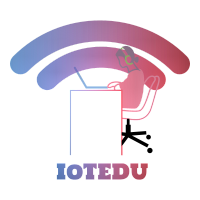In this article, best database for Internet of thing projects are going to discuss. For many Internet of Things (IoT) projects, relying on the cloud for data storage and analysis is inefficient and has many limitations, including:
- Dependence on an Internet Connection
- Lack of Speed
- Data Security/Privacy
- Broadband Limitations
- High Cloud Costs
In order to handle IoT data effectively, it is highly important to find the right sort of database. But choosing an efficient database for IoT applications could be really challenging as the IoT environment is not always the same. Moreover, there are many factors which have to be kept in mind while choosing a database for IoT applications. Further, the most important of these are scalability, ability to handle huge amounts of data at adequate speeds, flexible schema, and portability with varied analytical tools, security and costs.
Here is the name and detail of best database used for IoT project.
Berkeley DB
Berkeley DB is an ACID compliant embedded key-value store. Due to a static library size of less than 1 MB, and runtime dynamic memory requirements of only a few KB, it is suitable for a variety of edge devices. Further, the database is usable in many different languages, such as C++, C#, Java, Perl, PHP, Python, Ruby, Smalltalk and Tcl. Berkeley DB does not offer any synchronization support.

LevelDB
LevelDB is a key-value storage library that provides an ordered mapping from string keys to string values. It is written in C++ and has bindings for languages such as C, Go, NodeJS and Java. In addition, LevelDB runs on-disk and is queried without SQL. Applications need to use it as a library, as the database does not provide any server or command line interface. Indexes and synchronization are not supported.

ObjectBox
ObjectBox is a fast, object-oriented, ACID-compliant database with strong relation support. It is designed specifically for Edge IoT, embedded and mobile applications. ObjectBox has a memory footprint of less than 1 MB. It supports C, Go, Java, Kotlin, Swift, Python (Beta), and Dart. Centralized synchronization support is now available for early access and distributed / P2P synchronization is a work in progress in ObjectBox. It also offers a time series feature, optimized for time series data.

Realm
Realm, which was acquired by MongoDB in summer 2019, is an ACID-compliant NoSQL database. It has been strongly focused on mobile platforms from its start and is only beginning to move into IoT. It offers central as well as P2P synchronization. Supported languages include Java, Kotlin, Swift, C# and NodeJS.

Redis
Redis is a key-value database, which is per default not ACID-compliant. However, it offers an optional durability transaction concept, which when turned on reduces the database performance significantly. It works in memory with user commands not being data queries but specific operations perform on abstract data types. Redis has many different client bindings, e.g. C, C++, Dart, Go, Java, NodeJS, Python and Rust.

RocksDB
RocksDB is a persistent key-value store for SSD and RAM storage. It is not ACID-compliant, but works using concurrent transactions with conflict resolution. This embedded NoSQL database supports Java, Python, NodeJS, Go, PHP and Rust, to name only a few languages. Synchronization in any form is not natively possible with RocksDB.

SQLite
SQLite is the only fully SQL relational database library in this list. It comes with a small footprint and is fully ACID-compliant. It offers encryption as a paid service. There is no support for synchronization.

For more Internet of Things articles, visit here.










